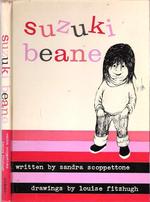The tagline for the NY Review of Books' blog is, "Roving thoughts and provocations." And Christopher Benfy's post about poetry and bending vs. breaking is certainly that:
Some commentators think that "Rock-a-bye Baby," first published in Mother Goose's Melody (1781), is American in origin, alluding to the alleged Native American practice of hanging birch-bark cradles in the trees so that the wind rocks them. The rhyme would seem to cast doubt on the safety of the practice, thus besmirching hardworking Indian mothers, who presumably had other things to do than rocking a cradle day and night.Bend or BreakAnd why exactly was the cradle hung in the tree-top? Were the lower branches already taken?
Others believe that "Rock-a-bye Baby" is a political allegory of the Glorious Revolution. Alarmed when the Catholic James II produced an heir to secure the Stuart succession, Protestants dreamed of infanticide. "In the nursery rhyme," Michael Vestey wrote in The Spectator, "the baby on the tree-top is the heir, when the wind blows it is the Protestant wind that will blow the fleet of William over to Britain, and when the bough breaks... down too will come the Stuart monarchy." (Dismissing such "fanciful and ingenious" explanations, Marina Warner suggests that the tree in the song is the family tree, and that the broken bough refers to "the death of parents and its effect on children.")
With lullabies like these, it's amazing that babies survive.


